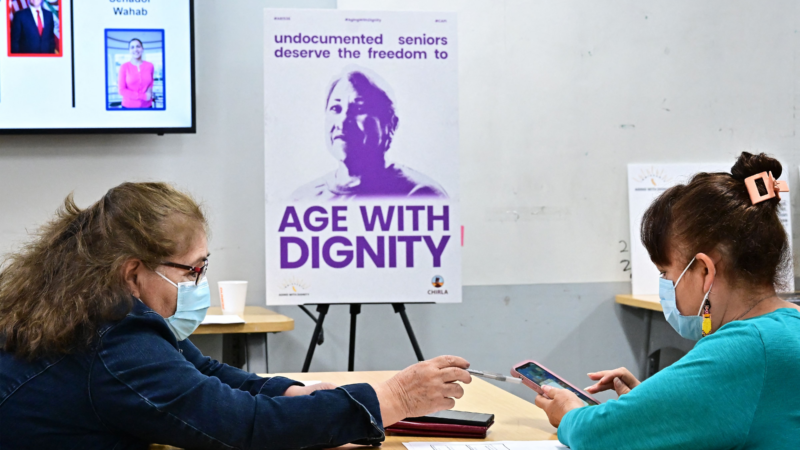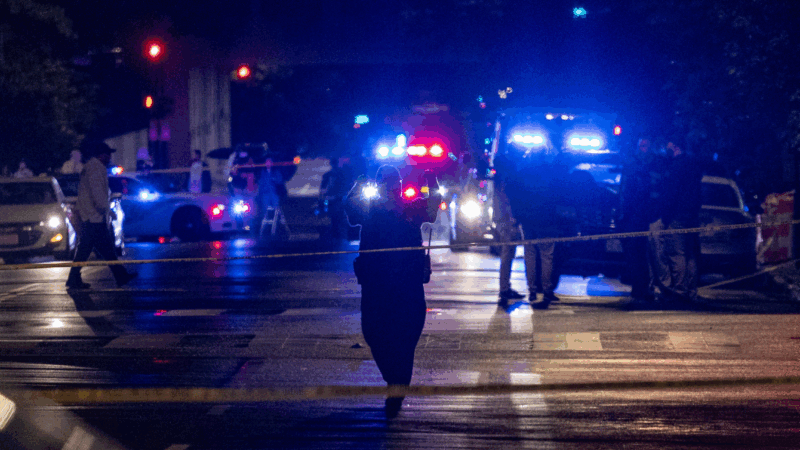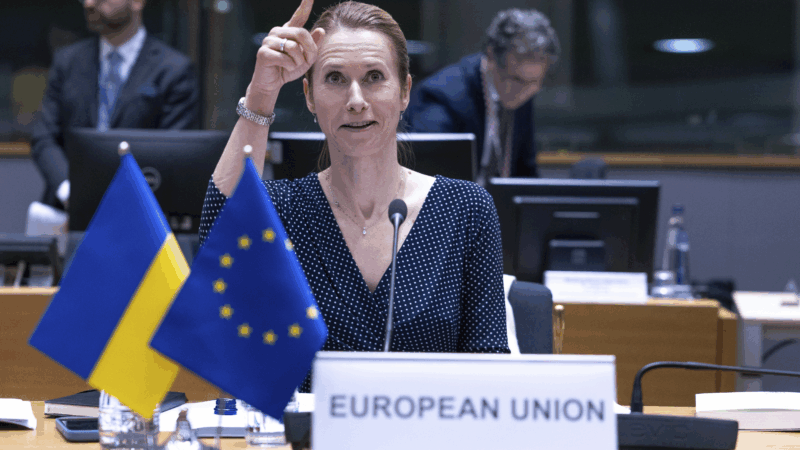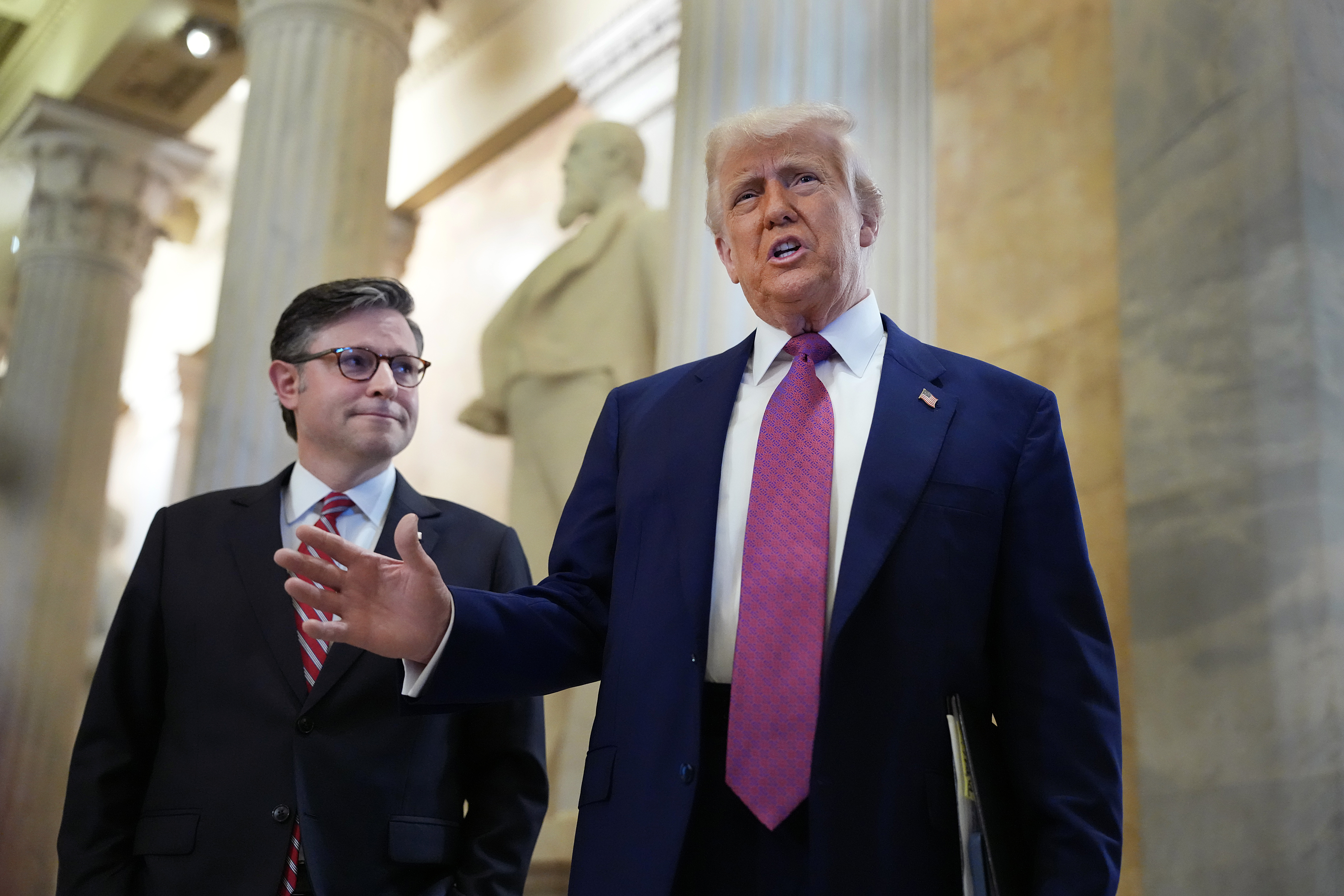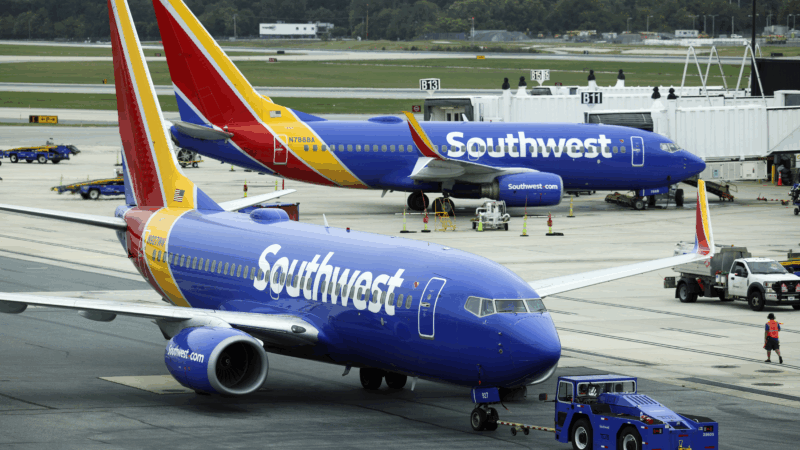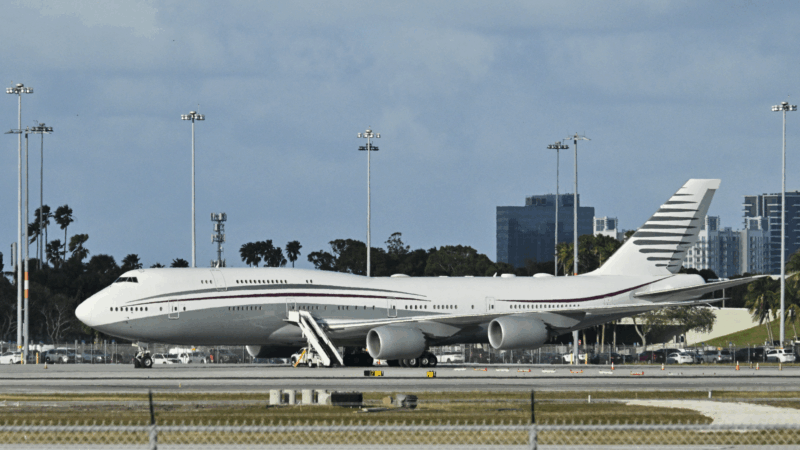Trump aims to cut benefits for those without legal status. Most already don’t qualify
President Trump issued an order Thursday aimed at preventing taxpayer money from supporting immigrants without legal status.
The order says it will end “all taxpayer-funded benefits for illegal aliens.” It does not clarify exactly which benefits will be targeted, but directs agencies to identify federally funded programs that do so.
Immigrants without legal status generally do not qualify for federal benefits, although there are some exceptions for emergency situations. All children are entitled to free K-12 education, regardless of immigration status, following a landmark Supreme Court decision in 1982.
However, immigrants who have been granted parole into the U.S. are eligible for certain benefits for a limited period of time, such as Medicaid and the Children’s Health Insurance Program (CHIP). Under the Biden administration, over a million people were paroled into the U.S., meaning they were admitted legally into the U.S. under temporary programs.
A White House fact sheet cited figures from the Federation for American Immigration Reform (FAIR), which advocates for lower levels of immigration. FAIR calculates that “American taxpayers spend at least $182 billion annually to cover the costs incurred by the presence of 20 million illegal aliens and their children.”
Research from other organizations paints a more complex picture.
A study from the Institute on Taxation and Economic Policy, a liberal tax research group, found those in the U.S. without legal status have contributed billions of dollars to the U.S. Social Security system.
And according to the libertarian CATO institute, “the biggest myth in the debate over immigrant welfare use is that noncitizens — which includes illegal immigrants and those lawfully present on various temporary visas and green cards — disproportionately consume welfare. That is not the case. Noncitizen immigrants consumed 54 percent less welfare than native-born Americans.”
The executive order also seeks to ensure that state and local governments do not use federal funds to support sanctuary policies — those that limit local law enforcement from assisting federal immigration officers. Trump tried to do this during his last administration, but the attempt was ultimately dismissed by the Supreme Court.
The White House did not respond to NPR’s request for further information on the specifics of the order.
2 Israeli Embassy staff are killed in a shooting in Washington, D.C., officials say
As attendees departed an event held by a Jewish advocacy organization in D.C. on Wednesday night, a shooter opened fire, killing two. Later, he chanted "free Palestine," D.C. police officials said.
Trump tried to shutter Radio Free Europe. The EU threw it a lifeline
EU officials say the broadcaster for years has played an important role providing news to areas where the press can't operate freely
Here’s what’s in the GOP megabill that’s headed for a vote in the House
At the center of the sweeping bill is trillions in tax cuts, which Republicans aim to partially offset through changes to safety net programs like Medicaid and SNAP.
Alabama Power threatened with lawsuit for contaminating groundwater with coal ash
Nine years after the Gadsden Steam Plant stopped burning coal, its unlined coal ash pond is still polluting Alabama groundwater, records show.
Southwest Airlines will require passengers to keep chargers visible due to fire risk
This year, there have been at least 22 incidents involving lithium batteries in air travel, according to data from the Federal Aviation Administration.
Trump administration officially accepts jet from Qatar for use as Air Force One
The plane is a gift that Trump said he would be "stupid" to turn down. Experts say the plane would take years to rework to meet the current standards for Air Force One.

